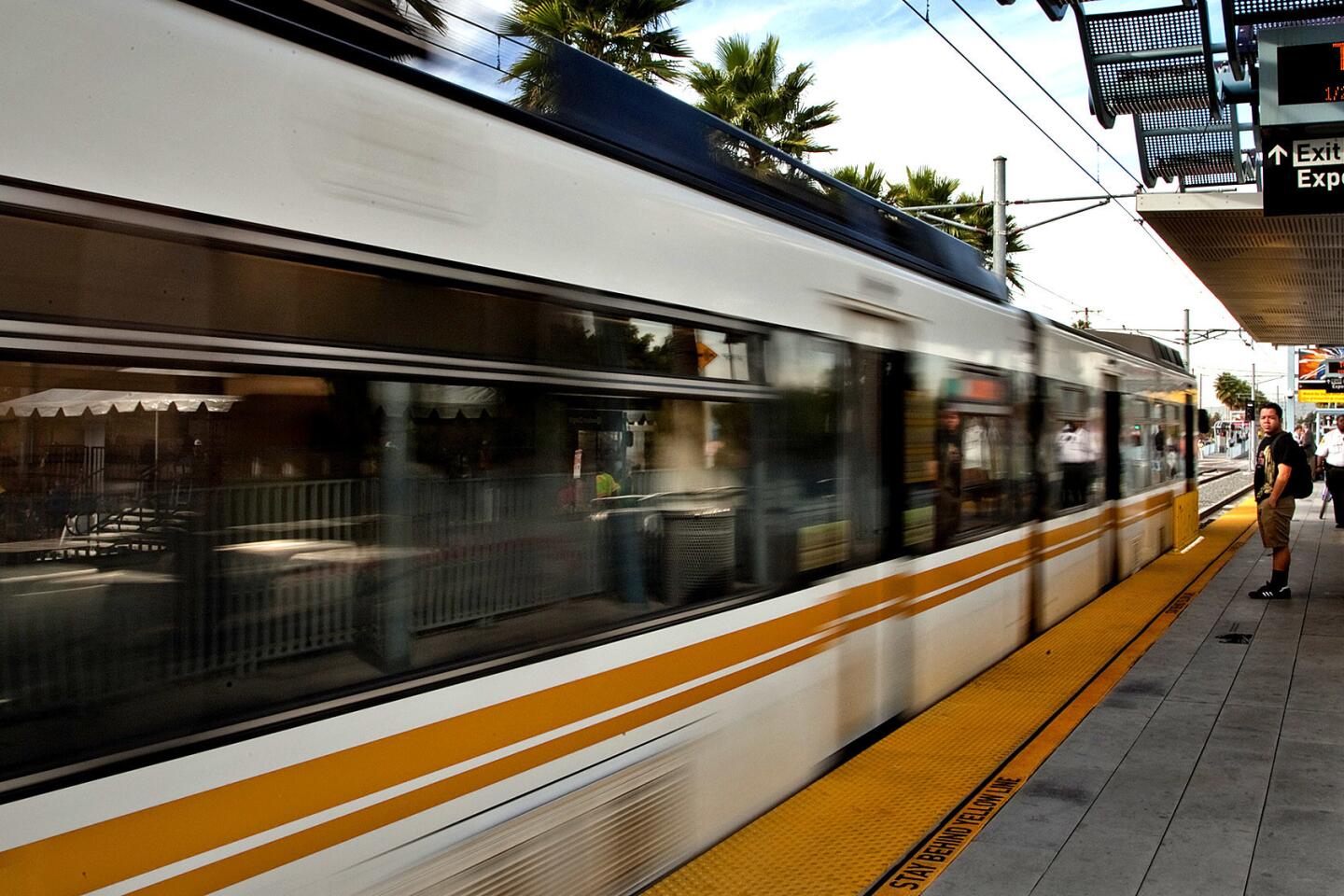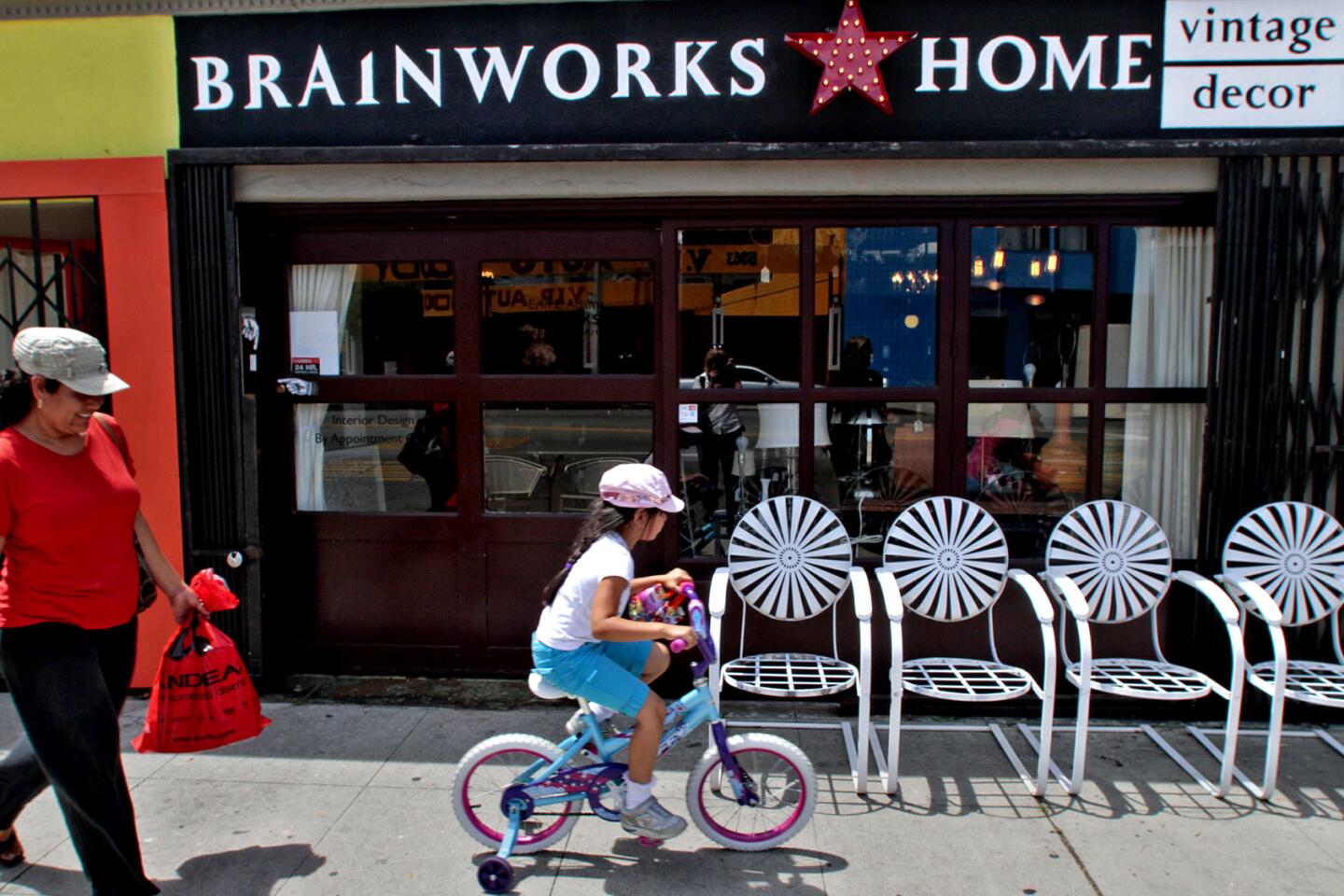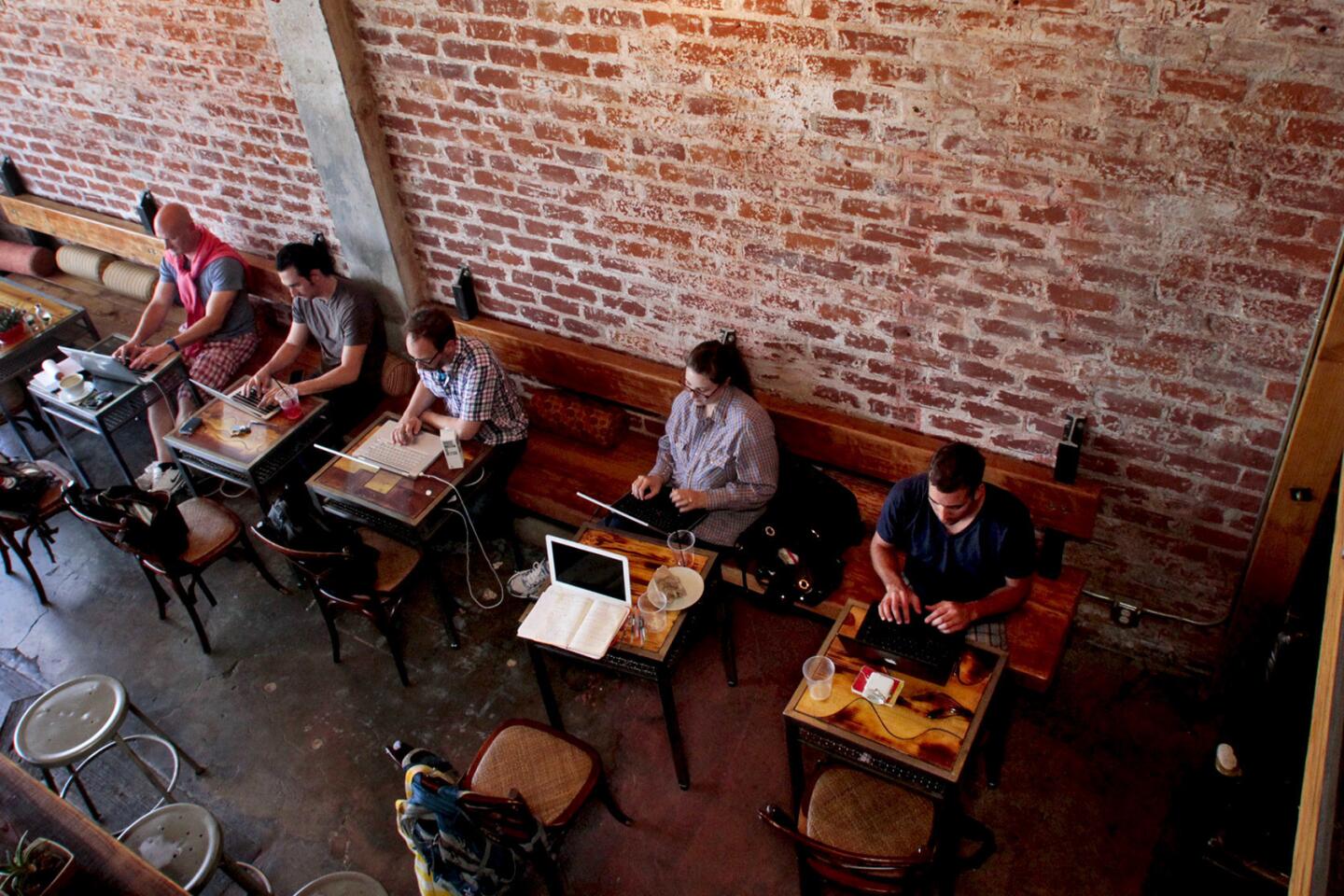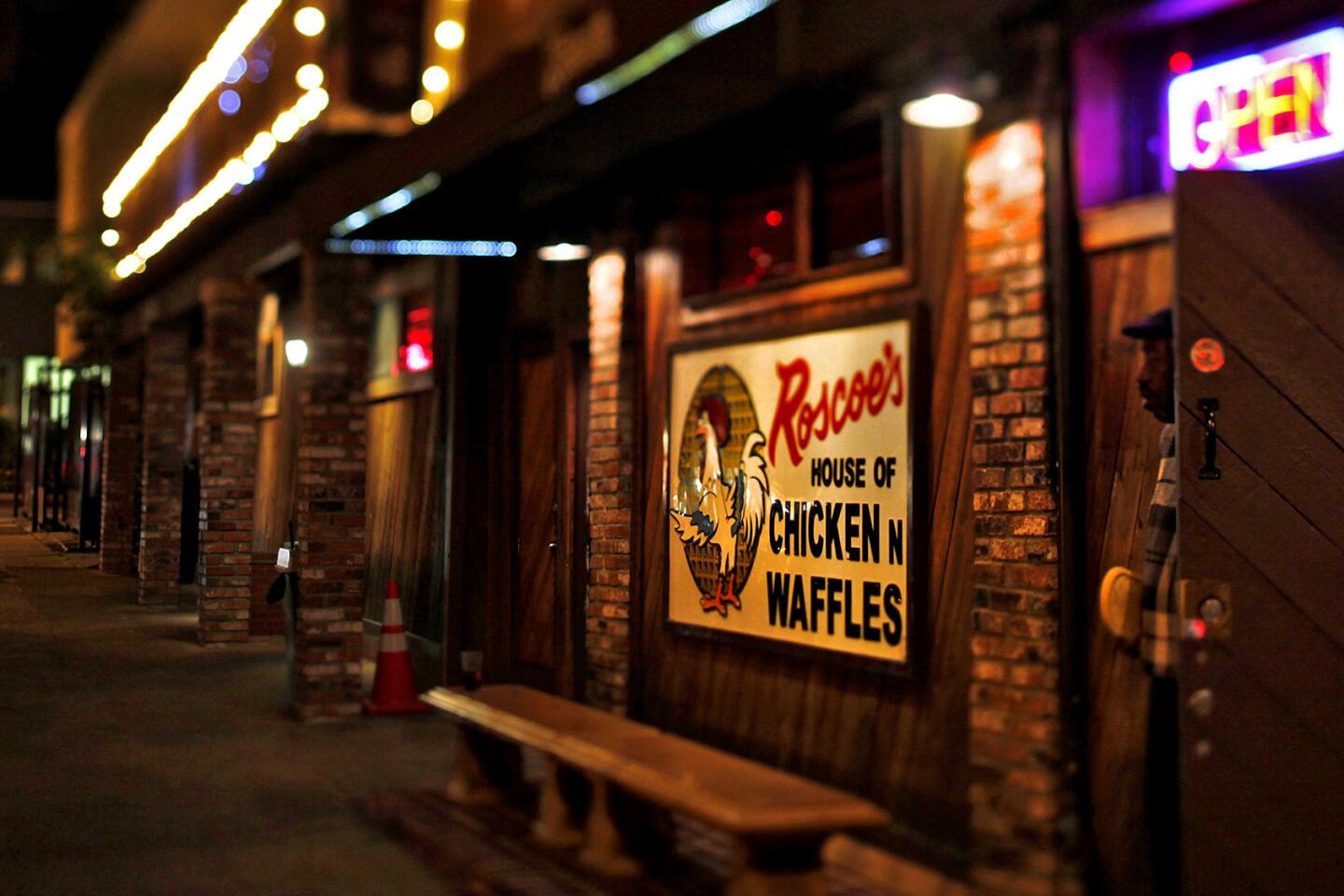Neighborhood Spotlight: Mid-City’s call is ‘Location, location, location’
- Share via
Sitting equidistant between downtown Los Angeles and the Pacific Ocean, the Mid-City district is a region of crossroads, a place of transit through which hundreds of thousands of commuters travel each workday.
The area plays a crucial role as a nexus in the city’s impossibly intricate web of commuting patterns. But it is also a collection of highly diverse neighborhoods that stretches from Crenshaw to Robertson boulevards, home to more than 50,000 Angelenos who have taken to heart the siren call of the classic billboard come-on to fatigued commuters: “If you lived here, you’d be home now.”
The commute has always been at the heart of Mid-City life. Before the rolling floor of the Los Angeles basin swapped sagebrush for concrete, isolated clusters of suburban villages were erected along the trolley tracks that ran between downtown and the ocean-side resorts of Santa Monica and Venice. Many of these suburbs were built by the trolley operators themselves, to provide a steady stream of customers for the Red and Yellow Cars that clattered back and forth across the rapidly growing metropolis.
Those trolley lines laid the groundwork for the construction in the 1920s and ’30s of the unique neighborhoods that would one day make up Mid-City. They include Picfair Village, with its Spanish Colonial homes and duplexes; the stately homes of George Crenshaw’s semi-gated Lafayette Square; and the beautiful Craftsman homes of Victoria Park. Many homes are well-preserved, with their historic character and charm intact, and most of them were built for downtown commuters.
The trolleys left their mark in other ways as well.
The site of the Los Angeles Railway trolley barn at Pico and Rimpau boulevards is now a recently developed retail hub, and the nearby Expo Line follows the old Red Car route to downtown Santa Monica.
If all goes according to Metro’s plan, Phase 2 of the under-construction Crenshaw Line will connect Mid-City to the city’s rail system once again. If that comes to pass, residents could soon be riding the rails to work, this time to any of number of new “downtowns” that have come into being in the 60 years since the trolleys rolled off the tracks and into the scrapyard.
Neighborhood highlights
The city’s hub: Almost anywhere you work in L.A., you’re a relatively short drive away (except the Valley — sorry!). There also are two Expo Line stations with parking lots nearby for those who are looking for an easier commute.
A diner’s delight: Chicken and waffles at Roscoe’s. Injera and doro wot in Little Ethiopia. Proximity to Pico Boulevard, one of L.A.’s best streets for foodies.
Home of the classics: For those who love those classic L.A. residential styles from the decades before World War II — from Arts and Crafts to Spanish Colonial Revival — you’ll find them all here.
Neighborhood challenges
The Westside is knocking: Bargain hunters fleeing sky-high Westside prices are beginning to discover Mid-City, which is great for property values, but problematic for longtime residents who rent.
Expert insight
Ben Nicolas, a Los Angeles real estate broker, said infrastructure improvements linking downtown and the Westside are making Mid-City more appealing.
“The main reason people want to be in this part of town is, No. 1, the geographical convenience,” he said.
As downtown continues to change, “there’s going to be people that work in downtown and have access to it, but they have a family, they have pets, they have a yard, so all these neighborhoods that are within earshot of downtown I think are just going to benefit.”
Market snapshot
Portions of the 90019, 90016 and 90018 ZIP codes overlap the Mid-City area.
In August, based on 28 sales, the median price for single-family homes in the 90019 was $1.009 million, according to CoreLogic. In the 90016, the median price was $560,000 based on 16 sales, and in the 90018, 17 sales resulted in a median price of $535,000.
Report card
Among the bright spots in Mid-City is the Los Angeles Center for Enriched Studies, which scored 897 out of 1,000 in the 2013 Academic Performance Index.
Crescent Heights Boulevard Elementary scored 833; Alta Loma Elementary scored 763; Shenandoah Street Elementary scored 759; and Saturn Street Elementary had a score of 754. Alexander Hamilton Senior High had 741.
More to Read
Sign up for Essential California
The most important California stories and recommendations in your inbox every morning.
You may occasionally receive promotional content from the Los Angeles Times.










